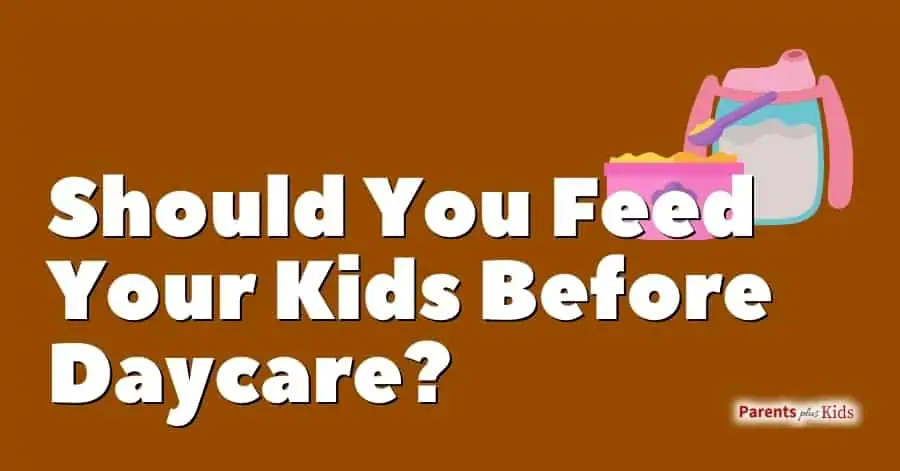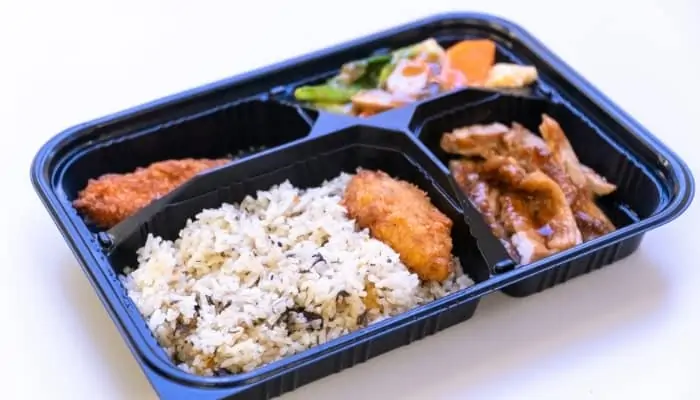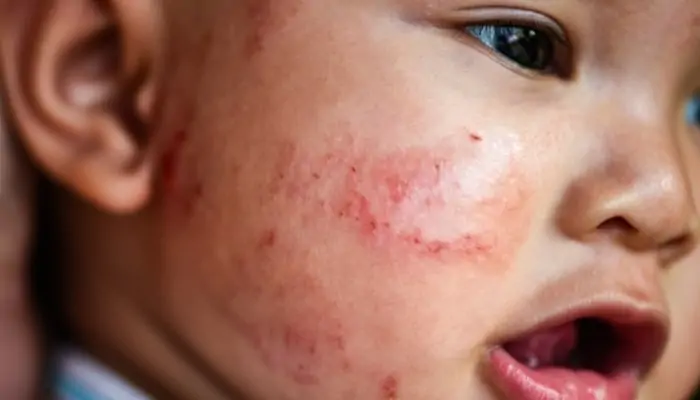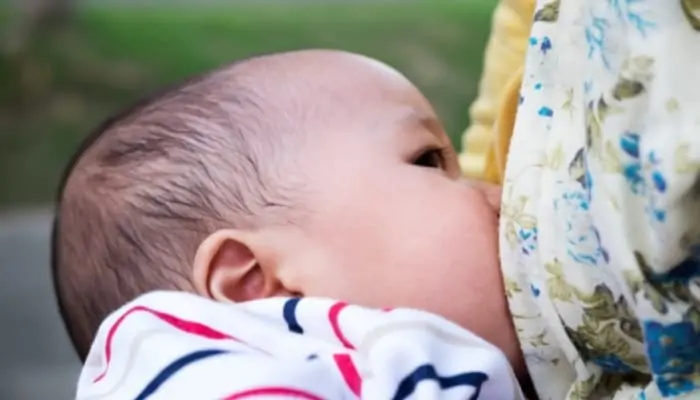Should I Feed My Kids Before Dropping Them at Daycare?

This post may contain affiliate links. If you buy through the link, I may earn a commission. Learn More.
My son is always hungry. He will eat everything in sight without stopping to consider whether he should chew first. My daughter is his polar opposite.
Feeding them is a chore I wouldn’t wish on my worst enemy. What does a parent like me do when it comes to daycare?
Should you feed your kid before dropping them off at daycare?
For little kids or babies, it’s better if you feed them before taking them to daycare. Busy daycares might not be able to feed the baby immediately. This is different with older kids who can feed themselves. If your daycare doesn’t offer a meal or your schedule is busy, making the decision is easier.
*FYI, some of the links in this article about should I feed my baby before daycare may be affiliate links. If you click and make a purchase, we may get a commission (at no extra cost to you). For more info, please see our disclaimer.
5 Reasons Why You Should Feed Your Kids Before Daycare
A full day of daycare means meals, snacks, and naps are on a schedule. Should a parent feed their child before the day at daycare begins? It depends on the child, the parent, and the daycare itself.
1. Picky Eaters and Slow Eaters

My daughter can easily take an hour to eat a single piece of toast. Of course, that toast has to have the crusts off, can only be lightly toasted, and can’t touch anything else on her plate.
A picky eater and/or a slow eater may need to eat at home before daycare just to ensure they’re eating the nutritious food the parent chooses.
Your child’s daycare may be on a tight schedule, which won’t give slow eaters enough time to digest their meals. A picky eater might throw their nose up at anything that’s offered to them, which leads to a lack of nourishment.
On the other hand, a regimented schedule may be the perfect option for a slow or picky eater. It can teach them that they have to work on someone else’s timeline if they want to be sustained. This is invaluable when preparing for elementary school, where lunch shifts may be no more than 20 minutes long.
2. Nutrition Concerns

My sister used an in-home daycare for her oldest child. Because she and her husband both worked two jobs, my niece ate breakfast, lunch, and dinner at the daycare.
It was rough on everyone, but my sister was confident that her daughter was receiving the best possible care while her family struggled to get through a tumultuous time.
By age three, she was experiencing repeated illnesses. She was anxious, her gums were bleeding, and her body easily bruised. She was overweight for her age, which is why my sister and her husband were shocked when they learned their child was suffering from malnutrition.
The daycare provider had healthy foods available for each meal, but children were allowed to only eat dessert if that was their choice. Therefore, my niece generally subsisted on cookies and ice cream for her meals throughout the week.
Her young body lacked the necessary nutrients to grow and thrive. This extreme example shows the importance of ensuring healthy meals. Parents may wish to feed their children at home to make sure they are being eaten each day.
3. Food Allergies

The Centers for Disease Control and Prevention (CDC) state that about 8% of children in the United States have food allergies.
Allergies can be present as something as simple as light rashes or as serious as anaphylaxis. A child with food allergies may need to eat at home to ensure there is no cross-contamination.
The ADA requires that daycare facilities provide space for children with severe food allergies. Still, there are times that foods are contaminated with trace amounts of nuts, eggs, wheat, or other common allergens. A child could face severe consequences when no one is truly at fault.
I speak from experience when I share concerns about food allergies. I have serious allergies to foods that most people would consider to be completely innocuous. Cherries, tomatoes, strawberries, grapes, bananas, kiwis, apples, tree nuts, and avocados, even in the smallest amount, would quickly send me to the hospital.
For a child who may not have the ability to ensure each food doesn’t contain allergens, eating at home might be the best way to stay healthy.
4. Nursing Infants

Whether or not to nurse before daycare is an individual choice. Some moms want to make sure there is no nipple confusion. They will nurse before daycare, visit the daycare during their lunch break to nurse again, and then nurse immediately upon pickup.
Other moms might want their infants to be quickly weaned. They may pump breast milk and provide bottles that the daycare will use during the day, or they might nurse at home for a bonding experience before taking the baby to daycare with bottles in tow. It truly is a personal choice.
My experiences were different with each child. My oldest was too busy to adequately nurse. A bottle was a better option for him. My daughter refused the bottle entirely.
My day was structured around nursing her no matter what I had going on. I accommodated both children in the manner they needed, and it worked out fine for everyone.
5. Daycare Policy

The daycare’s meal policy may be the most important one. Some daycare facilities will not provide breakfast, which makes the parent’s choice an easy one. Most offer a time for children to eat breakfast, but the parents must provide the food.
Parents who pack a meal for their kids can take the time and effort to make sure nutritional needs are met, but they can’t always be sure the children are eating everything that is packed.
A good way to manage this is to ask daycare staff to keep all uneaten food in the packed lunch box. Parents can then inspect what is eaten and what is being pushed aside.
Each Family Has Different Needs
Whether a parent decides to feed their child before daycare or not, they must communicate this decision with the child care provider. This way, everyone knows if a child should or should not be given a meal in the morning.
How do you manage meals with your child? Tell us your story in the comments!
